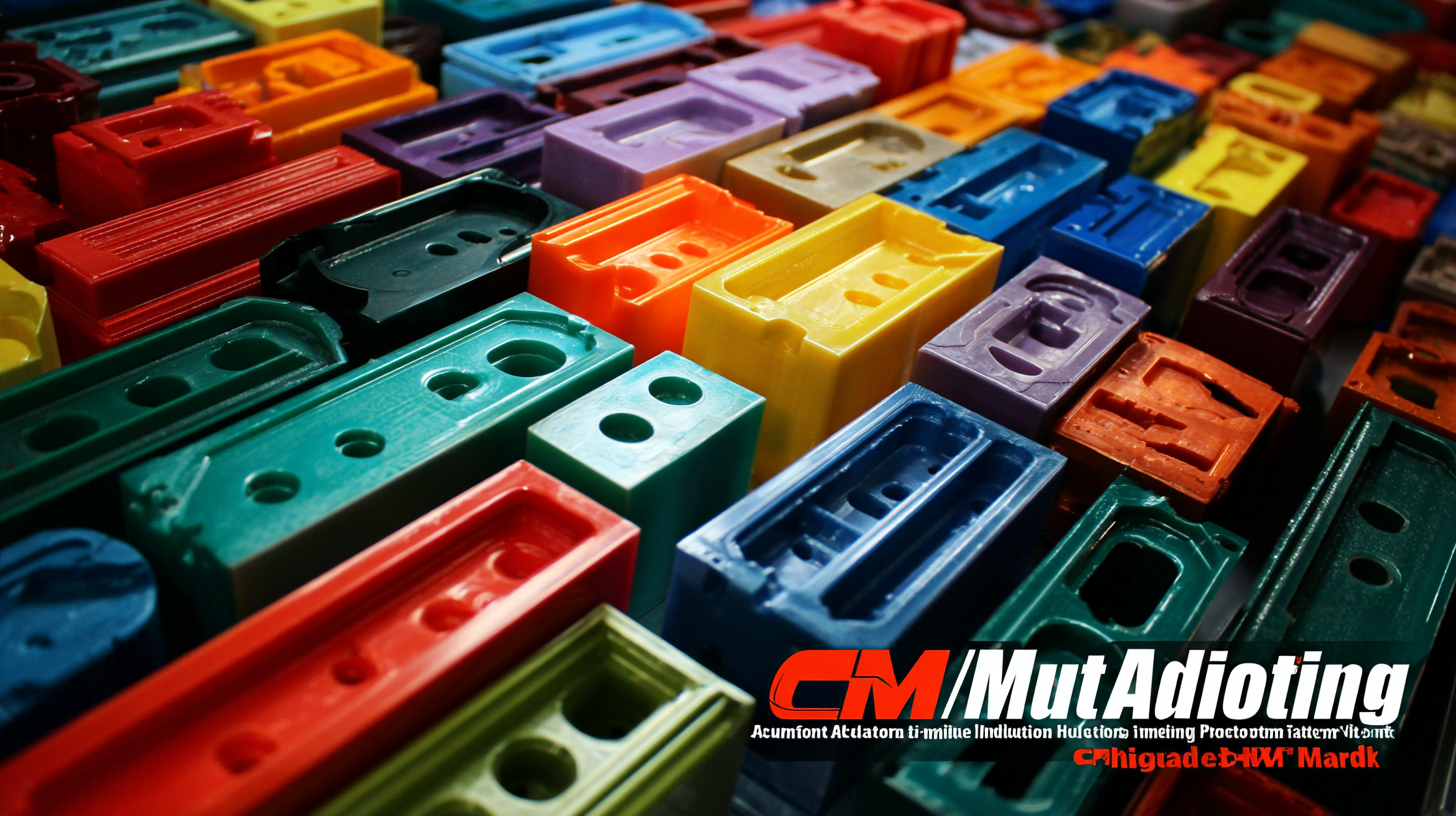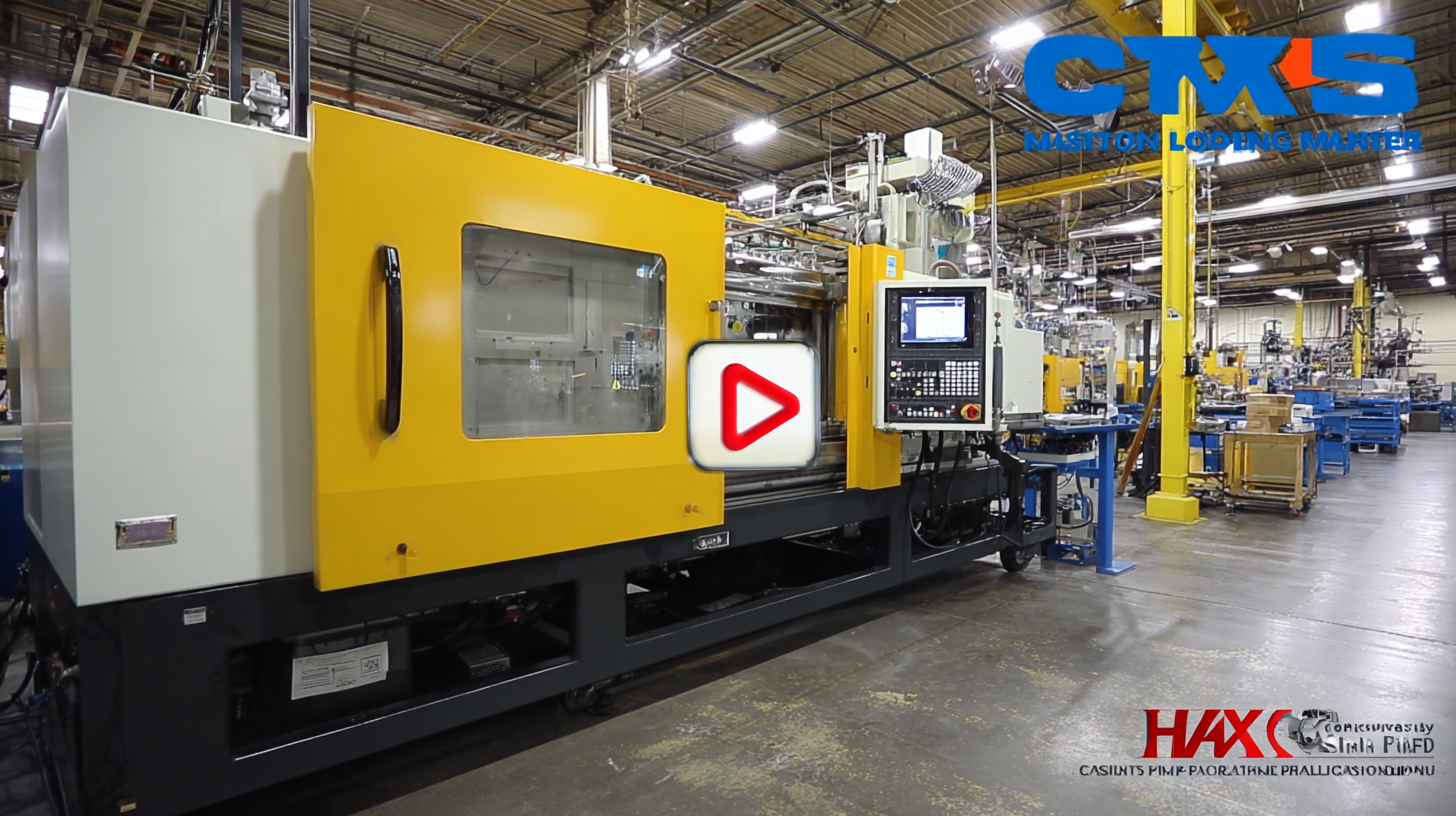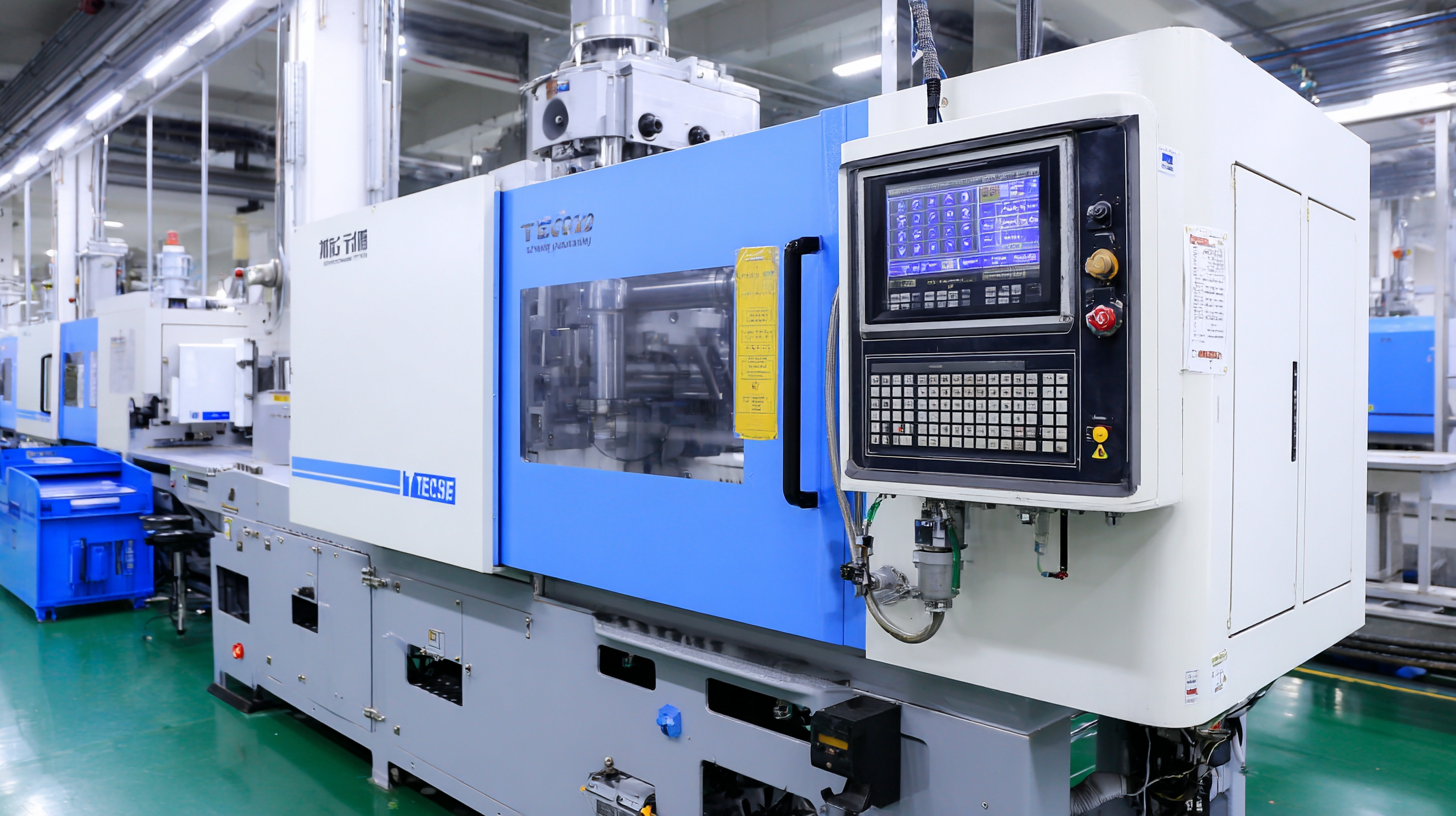In today's rapidly evolving automotive industry, the demand for innovative solutions has never been greater, particularly in the realm of Custom Automotive Plastic Injection Molding. This advanced manufacturing process allows automobile manufacturers to create highly specialized and efficient components, catering to the unique requirements of modern vehicles.

As we delve into the global market, we will explore how this technique not only enhances productivity but also contributes to sustainability by minimizing waste and optimizing resource use. From interior panels to intricate exterior trims, Custom Automotive Plastic Injection Molding is revolutionizing the way automotive parts are designed and produced.
This ultimate guide will provide insight into the latest trends, applications, and benefits of utilizing customized plastic injection molding in the automotive sector, showcasing its pivotal role in shaping the future of vehicle manufacturing.
The automotive industry is experiencing transformative changes in 2023, particularly in the realm of custom automotive plastic injection molding. Recent market research indicates a growing trend towards innovative applications of this technology, aligned with the industry's shift towards sustainability and efficiency. For instance, the global injection molding machines market is projected to grow from USD 17.56 billion in 2025 to USD 25.78 billion by 2033, reflecting a significant compound annual growth rate (CAGR). This growth underscores the increasing demand for precise, high-quality plastic components that are essential for modern vehicle manufacturing.
Moreover, the automotive plastic interior trim market is anticipated to reach USD 38.00 billion with a CAGR of 2.78% by 2034. This growth is largely driven by the automotive industry's need for lightweight yet durable materials, which enhance performance and reduce emissions. As manufacturers continue to innovate through custom molding technologies, the integration of advanced materials and designs will not only improve vehicle aesthetics but also meet strict regulatory standards. With evidence from various market studies, it's clear that the future of automotive plastic injection molding is poised for extensive developments and exciting opportunities in the global market.
| Application Area | Material Type | Industry Trend | Market Growth Rate (%) | Key Benefits |
|---|---|---|---|---|
| Interior Components | ABS, Polycarbonate | Sustainability Focus | 8.5% | Lightweight, Cost-effective |
| Exterior Components | Polypropylene, Nylon | Electric Vehicles | 10.2% | Durability, Aesthetics |
| Under-the-Hood Components | Polyphenylene Sulfide, Polyamide | Technological Advancement | 7.8% | Heat Resistance, Safety |
| Functional Parts | Thermoplastic Elastomers | Customization | 9.1% | Flexibility, Noise Reduction |
Custom plastic injection molding has revolutionized the automotive manufacturing sector by offering significant advantages that enhance operational efficiency and product quality. With the growing global demand for lightweight and durable materials, the plastic fasteners market is projected to reach USD 9.00 billion by 2032, emphasizing the industry's shift towards innovative, sustainable solutions. Automotive manufacturers can leverage custom injection molding to produce intricate components that meet stringent safety standards while minimizing weight, which is crucial for improving fuel efficiency.
Furthermore, major developments in injection molding technologies have led to increased precision and reliability in the production of automotive parts. With the global injection molding machines market estimated to grow from USD 17.56 billion in 2025 to USD 25.78 billion by 2033, advancements such as thermoset injection molding are enhancing the capabilities of custom molding solutions. By investing in advanced molding technologies and utilizing high-quality materials, manufacturers can not only improve performance but also ensure compliance with evolving industry standards, ultimately driving growth in the competitive automotive market.
The global demand for automotive plastic injection molding solutions has seen significant growth due to the increasing need for lightweight, durable materials in vehicle manufacturing. High-density polyethylene (HDPE) is a crucial material in this sector, driven by its excellent resistance to impact and chemicals, making it ideal for various automotive applications. Recent market analysis indicates that the HDPE market is projected to grow at a compound annual growth rate (CAGR) of over 4% from 2023 to 2030, reflecting the ongoing shift towards sustainable manufacturing processes.
In terms of applications, HDPE is widely utilized in blow molding, film and sheet production, injection molding, and pipe extrusion, catering to diverse automotive components, including fuel tanks, interior panels, and protective covers. With the automotive industry's increasing focus on enhancing vehicle efficiency and reducing emissions, the demand for HDPE is expected to rise, particularly in regions such as North America and Asia-Pacific, where automotive production is booming. The integration of advanced technologies in plastic injection molding, alongside increasing investments in R&D, further solidifies HDPE's position in the automotive market as a staple material for innovative vehicle designs.
The global automotive industry is witnessing a remarkable transformation, thanks in large part to innovative custom plastic injection molding solutions. Leading automakers are capitalizing on these advanced methodologies to enhance vehicle performance, reduce weight, and improve overall design flexibility. One striking case study involves a major automotive manufacturer that implemented custom molding for interior components, resulting in a 30% reduction in weight while maintaining structural integrity. This innovative approach not only optimized fuel efficiency but also allowed for intricate designs that enhanced user experience.

Another notable example comes from a renowned electric vehicle company that used custom injection molding for its battery housing. By utilizing a high-strength, lightweight plastic composite, they achieved a significant cost reduction in production while increasing the vehicle's range. This strategic application of custom molding demonstrates how manufacturers can leverage technology not only for performance but also for sustainability, meeting consumer demand for eco-friendly solutions. As these case studies illustrate, the future of automotive design is increasingly intertwined with innovative molding techniques that drive both efficiency and creativity.
 The injection molding industry is undergoing significant transformations, driven by advancements in technology and innovative applications. One of the key trends shaping the future is the integration of smart manufacturing solutions. By leveraging the Internet of Things (IoT), manufacturers can monitor and optimize production processes in real-time, leading to increased efficiency and reduced waste. This technology not only streamlines operations but also enhances product quality, making custom automotive plastic injection molding more reliable than ever.
The injection molding industry is undergoing significant transformations, driven by advancements in technology and innovative applications. One of the key trends shaping the future is the integration of smart manufacturing solutions. By leveraging the Internet of Things (IoT), manufacturers can monitor and optimize production processes in real-time, leading to increased efficiency and reduced waste. This technology not only streamlines operations but also enhances product quality, making custom automotive plastic injection molding more reliable than ever.
Tips for businesses looking to stay ahead in this rapidly evolving market include investing in training programs for employees. As new technologies emerge, a skilled workforce is essential to maximize the benefits of automation and smart technologies. Additionally, collaboration with research institutions can facilitate access to cutting-edge developments, ensuring that companies remain competitive. Emphasizing sustainability practices will also resonate with environmentally conscious consumers, contributing to a positive brand image in the automotive sector.
Moreover, the implementation of advanced materials, such as bio-based plastics, is reshaping design and production processes. These materials not only provide enhanced performance but also meet the growing demand for environmentally friendly solutions. Companies should consider these innovations to cater to evolving market demands, ensuring their products are aligned with the future of the automotive industry.
